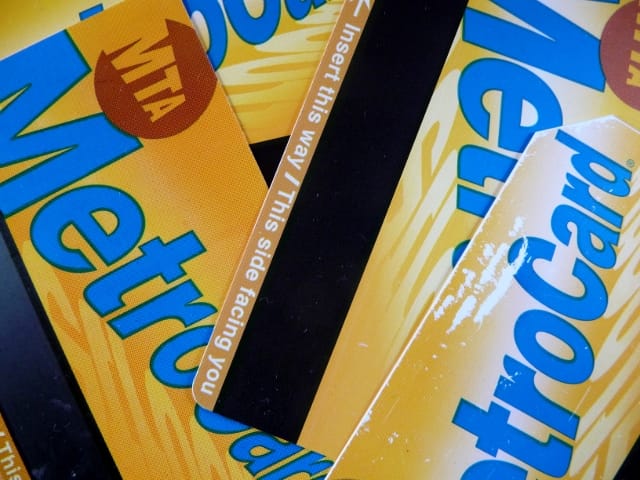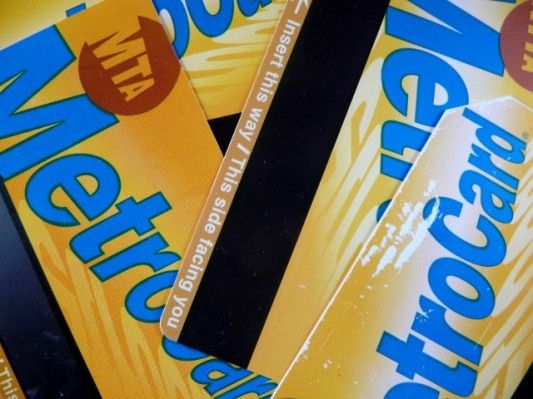Transit Advocates Fight Upcoming Fare Hikes


In response to the MTA’s plans for several significant fare and toll hikes over the next five years, Transportation Alternatives is attempting to push back against the hikes with a strongly worded petition meant for the desk of Governor Cuomo. The bicycle and transit advocacy group’s “Stop the Fare Hike” petition reached 12,500 signatures earlier today.
The petition focuses on the three significant transit fare hikes in the last five years:
In 2007, a 30-day unlimited MetroCard cost $76. In 2012, a 30-day unlimited MetroCard costs $104. In March 2013, if the fare is hiked at the same rate as it was in 2010, it’ll cost $122.
That’s an increase of $216 per year for most residents.
Meanwhile, the state government has stolen $260 million in what was supposed to be dedicated transit funding — and the city hasn’t increased funding since 1992.
The basic fare will rise to $2.50 and major bridge and tunnel tolls will hit $7 each way beginning in 2013, said MTA Chairman Joseph Lhota earlier this year. The final decision on 2013 fares will be made this winter after public hearings in November and a vote in December. Similar increases of at least 7.5% are planned in 2015 (to at least $2.69, to add $450 million in fare revenue) and 2017 (to at least $2.89, to add $500 million in fare revenue). The $3.00 mark seems imminent at this point. In debates like these, it’s important to fully appreciate the history of transit fare in New York. The Queens Chronicle details that history here.
In addition to the fare and toll hikes, Hilary Ring, the MTA’s director of Government Affairs, said that there will not be any new subways for at least three years despite city-wide ridership rising 30% in the last 15 years to the highest levels since the 1950s according the The Daily News. Though bus ridership is down, new buses will be purchased and put into use in the near future.
While critics assert that one of the MTA’s biggest financial problem is that the state continues to raid the agency for money, MTA Chairman Lota cites “uncontrollable costs” such as pensions, health care, and energy as the agency’s chief concerns. The Chairman has spoken about “the need for broad-based tax revenue somewhere within the system over the next couple of years” to deal specifically with these issues.
Would you rather endure multiple smaller hikes (of 7 to 11%) every couple of years or have a big one (of about 20%) hit every five years? Are the fare hikes justified at all? And perhaps the biggest question of them all: How can the MTA escape from a state of perpetual financial disaster?




